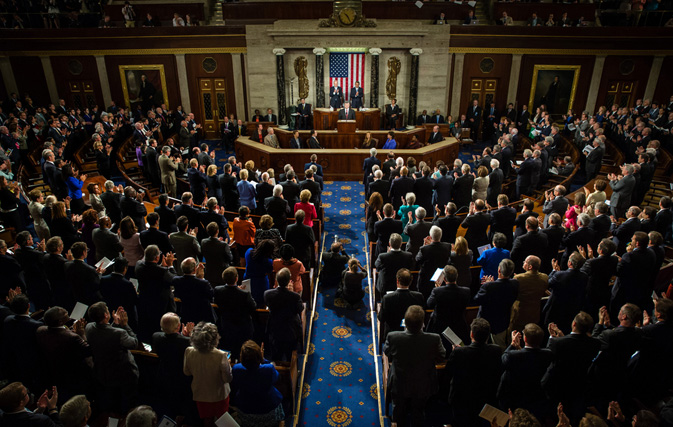WASHINGTON — The U.S. House of Representatives may move quickly to overhaul a program that allows travel to the United States with no visa, something that has come under criticism following the Paris terror attacks.
The overhaul appears unlikely to touch Canada.
Majority Leader Kevin McCarthy told reporters Monday that he was looking at action before the end of the year. Without legislation “I think the country will be less safe,” the California Republican said.
At the same time, the White House announced a series of changes aimed at improving the program, including more terrorism information sharing with other countries.
The so-called visa waiver program lets people from 38 countries visit the U.S. for 90-day stays without obtaining a visa. It has come under scrutiny following the Paris terror attacks since several of the suspected perpetrators were from Belgium and France, which are countries on the list.
Canada is not among the 38 countries in the visa waiver program, most of which are European. Tourists visiting from those countries can spend three consecutive months in the U.S. while Canadians can spend six.
Multiple sources in both countries pointed out that Canada is exempt from the visa waiver program.
The matter remains before Congress, and any legislation could undergo serious changes before being sent to the president for his signature and adoption.
More than 21 million Canadians visit their southern neighbour annually.
McCarthy outlined five changes House Republicans would like to see to the visa-waiver program. They include requiring all countries to issue electronic passports; ensuring that all passengers are screened against a database of lost and stolen passports; and requiring annual assessments of high-risk countries.
Changing the visa waiver program appears to have bipartisan support in the House and the Senate and general agreement from the White House. Many lawmakers note that the large scope of the program – it admits some 20 million visitors to the U.S. each year – makes it a potential security concern.
By contrast, the number of Syrian refugees entering the U.S. is much smaller, numbering fewer than 2,500. The House voted earlier this month to crack down on the refugee program, over objections from the White House.
Sens. Dianne Feinstein, a Democrat, and Jeff Flake, a Republican, are working on a visa waiver bill in the Senate and hope to introduce it this week. It’s possible that such legislation could be added to a must-pass year-end spending bill.
The changes announced Monday by the White House are steps that can be taken without congressional approval. They include capturing more information from visa waiver travellers about their past travel to countries constituting a terrorist safe haven, and having the Homeland Security Department work directly with visa waiver countries in helping them screen refugees.
